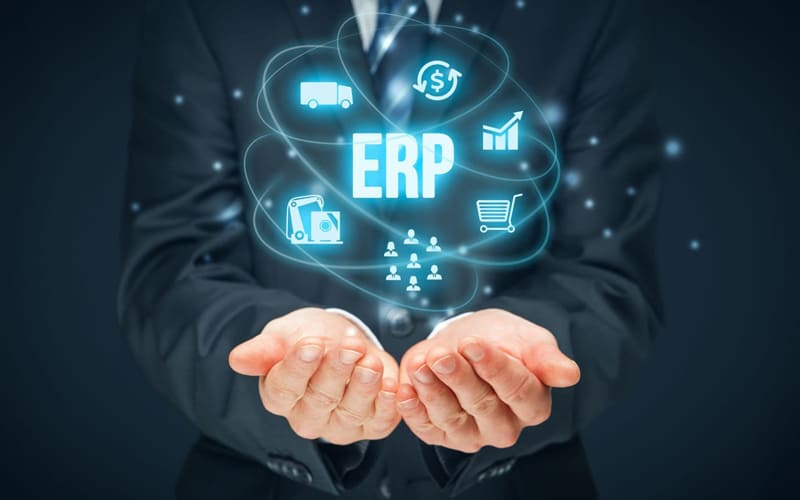
ERP Systems: How are They Shaping Businesses
Posted on February 21, 2024
Introduction: What are ERP systems?
Enterprise resource planning systems refers to the practice of combining an enterprise’s sales, planning, manufacturing, and marketing efforts into a single management system. The demand for ERP systems will rise as the new generation wants to focus more on initiating a startup as compared to working as an employee in companies. The role of ERP is to combine all databases across different departments into one single database that can be used by the employees of an organization.
In this blog, we will discuss the future of ERP systems, different factors, and so on.
ERP implementation risks and challenges
The enterprise resource planning system is like the backbone of an organization. Using ERP systems facilitates business growth and improves profit and efficiency by providing a centralized source. However, ERP systems can be challenging and important for a business as they impact business operations, security management, inventory management, etc. Employees must choose ERP software with care, as it demands that you predetermine your business strategy for the long term.
Here are some common ERP implementation challenges that one must take into account for a better experience with the system:
- Data quality control
Data quality is necessary for companies transferring legacy data into a new ERP system. Eliminating duplicates, validating the data, filling in blanks, and measuring the new data should be done to assure data quality. Teams should be subdivided into well-defined roles, such as customer support and accounting. Data transfer to ERP systems requires a high level of data quality, as there may be incorrect information, copies of the same information, discrepancies, and outdated information. - Lack of efficient planning
Companies should make sure to pay attention to the resources and time required for successful implementation. A practical and robust plan can help prevent these kinds of problems, ensuring effective decision-making. The project will stay on track when your team lays down a well strategic plan to tackle and manage issues, risks, and challenges. - Maintenance costs
ERP systems need regular maintenance, which leads to high bills. Firms often need to pay more attention to the efforts involved in switching to a new system, resulting in cost overruns. Before switching to another ERP system, make sure to consider if the program will match the steps of constantly changing technology.
Emerging Trends Shaping the Future of ERP
- The internet of things (IoT)
The internet of things refers to the connection between the computer and other devices. IoT aims to provide forecasting, improved asset management, efficiency, communication, real-time business insights, and more. IoT also supports real-time analytics, autonomous vehicles, AI, and so on. IoT integration will be seen everywhere in the ERP software industry, and IoT has spread across various industries and has no chance of slowing down. According to various studies, the global IoT market could reach USD 73,918 million by 2026. - Mobile ERP
With everyone busy on their smartphones, laptops, tablets, and other devices, mobile ERP is gaining popularity in the industry. Flexibility plays an important role in and out of the workplace, which is why, according to predictions, the global smart mobility market will reach a value of USD 70.46 billion by 2027. - Artificial intelligence
AI is making a big change with technologies like Alexa, Spotify, ChatGPT, Siri, Netflix, and more AI tools that help us in each step. If AI can enhance our leisure and work time, it should be easy to integrate with ERP systems to automate business processes. AI is already flourishing in the manufacturing and accounting realms.
Conclusion
The future of ERP software plays an important role in current market trends and demands. The ERP features of manufacturing SMEs need to be able to link devices, departments, partners, suppliers, and their customer bases in one comprehensive database. By the time we get to the end of this article, the AI-powered ERP for the transportation industry or other manufacturing industry will be able to do more than track every single aspect of your company. In fact, it will be able to provide recommendations for improvement and optimization at every level of your business, becoming the driving force behind your operation!
In order to successfully implement an ERP trend or software, you need to study an in-depth analysis of the current market. You need to know which ERP trends are right for your company based on its size, industry, and functional needs.
